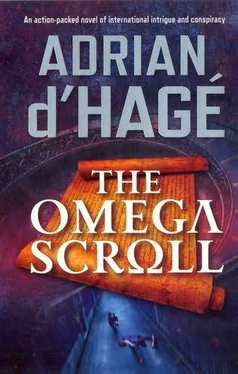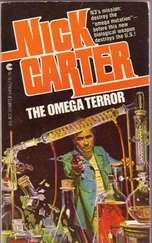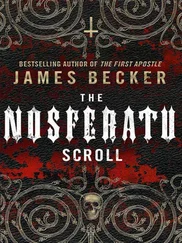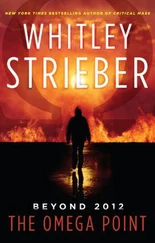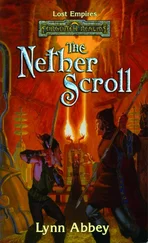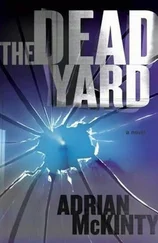Adrian D'Hage - The Omega scroll
Здесь есть возможность читать онлайн «Adrian D'Hage - The Omega scroll» весь текст электронной книги совершенно бесплатно (целиком полную версию без сокращений). В некоторых случаях можно слушать аудио, скачать через торрент в формате fb2 и присутствует краткое содержание. Жанр: Политический детектив, на английском языке. Описание произведения, (предисловие) а так же отзывы посетителей доступны на портале библиотеки ЛибКат.
- Название:The Omega scroll
- Автор:
- Жанр:
- Год:неизвестен
- ISBN:нет данных
- Рейтинг книги:3 / 5. Голосов: 1
-
Избранное:Добавить в избранное
- Отзывы:
-
Ваша оценка:
- 60
- 1
- 2
- 3
- 4
- 5
The Omega scroll: краткое содержание, описание и аннотация
Предлагаем к чтению аннотацию, описание, краткое содержание или предисловие (зависит от того, что написал сам автор книги «The Omega scroll»). Если вы не нашли необходимую информацию о книге — напишите в комментариях, мы постараемся отыскать её.
The Omega scroll — читать онлайн бесплатно полную книгу (весь текст) целиком
Ниже представлен текст книги, разбитый по страницам. Система сохранения места последней прочитанной страницы, позволяет с удобством читать онлайн бесплатно книгу «The Omega scroll», без необходимости каждый раз заново искать на чём Вы остановились. Поставьте закладку, и сможете в любой момент перейти на страницу, на которой закончили чтение.
Интервал:
Закладка:
The Papal Physician put down the phone and stared at it. For a long time now the Pope’s health had not been his only concern in the Vatican. Professor Martines was an eminent physician, but he also had an additional qualification in psychiatry. Not for the first time Professor Martines wondered whether the Cardinal Secretary of State was fit for high office. There was a long list of symptoms: egocentric and grandiose; deceitful and manipulative; a lack of remorse or guilt; shallow emotions; demanding automatic compliance with expectations; a need for excitement; and requiring excessive admiration. Martines wondered if his diagnosis was accurate, or was it something even deeper, even more sinister. Martines also wondered if there might have been problems in Petroni’s childhood. Had he been privy to the Cardinal’s private life, the Papal Physician’s innermost fears and diagnosis would have been confirmed.
On the other side of the Tiber Cardinal Petroni buzzed to summon his private secretary, Father Thomas. Having sown the seed of resignation, his planned meeting with the Curial Cardinals could not be delayed any longer. It would be important to catch them off guard. Almost immediately there was a knock on the heavy double doors of his office.
‘ Avanti.’
Father Andrew Thomas was a quiet man in his early thirties with a reputation for ruthless efficiency. ‘Yes, Eminence?’ he inquired.
‘How many of the Curial Cardinals are away from Rome?’
‘As far as I know, Eminence, all of them are here.’
‘ Eccellente. We will not require more than one briefing. I’ve asked Professor Martines to come and see me tomorrow night. Give each of the cardinals my compliments and ask them if they would join us in the Borgia Chamber at eight.’
‘Certainly, Eminence.’
‘Apologise for the inconvenience, Father Thomas, and tell them that the Papal Physician is providing a personal assessment on the Holy Father’s condition. Something that I note CCN has already done for us.’ Petroni smiled thinly. ‘I think you will find they will all want to be there.’
‘Certainly, Eminence. Will there be anything else?’
‘Just the usual, have the driver on stand-by to pick me up at nine this evening.’
‘Of course, Eminence.’ Father Thomas withdrew quietly and closed the double doors behind him, not questioning why such a senior member of the Curia ordered his car late every second Monday.
CHAPTER FOUR
Washington
M ike McKinnon, the CIA’s expert on the missing Russian ‘nuclear suitcase bombs’, took one of the leather adviser’s chairs along the panelled wall of the Situation Room that was located downstairs from the Oval Office in the basement of the West Wing. A veteran of thirty-five years, Mike McKinnon had spent his early career in the Middle East acquiring a background in Arabic and Islam, before moving on to Soviet East Europe. McKinnon’s face was rugged and pockmarked, his dark hair closely cropped. At 5 foot 10 inches, he tipped the scales at a fit 198 pounds, unchanged from when he was on his last field assignment in Bosnia Herzegovina. Now, much to his chagrin, he was back at a desk in the Directorate of Operations at Langley.
McKinnon nodded to the new Director of Central Intelligence, who was already seated at the conference table, along with the Secretary of State, the National Security Adviser, the Secretary of Defense, the Secretary for Homeland Security and the Chairman of the Joint Chiefs. One of the last to arrive was the Vice President and they all stood as the President entered the room.
This was not the first time Mike McKinnon had been called to the White House Situation Room. He quietly scanned his notes while the President was brought up to date with Iraq, along with the growing nuclear threats emanating from Iran and North Korea. McKinnon had heard it all before.
‘Special atomic demolition munitions?’ the President inquired, glancing at the next item on the agenda.
‘Nuclear suitcase bombs, Mr President,’ the Director of Central Intelligence responded. ‘Officer McKinnon you’ve met,’ he added, nodding towards Mike.
‘Mr President,’ Mike began, ‘this morning’s brief covers the latest intelligence reporting on the likely whereabouts of some of the nuclear suitcase bombs that were manufactured in the Soviet Union. Several years ago, Alexander Lebed, Boris Yeltsin’s Security Secretary, admitted that eighty-four out of 132 nuclear suitcases produced in the nineties were missing. We have reason to believe that al-Qaeda have acquired several of these bombs and at least five of them are now in the United States. There may be two others: one in the United Kingdom and one in Australia.’
‘Where the hell did they get hold of those?’ the President demanded.
Mike McKinnon maintained his passive expression. ‘As you are aware, Mr President, Osama bin Laden has considerable financial backing. After the break-up of the Soviet Union in 1991 several Russian officers, some of whom hadn’t been paid for months, turned to the black market.’
‘Several of these bombs turned up in 1994,’ the Secretary of State confirmed. ‘The leader of the Chechen separatists, Jokhar Dudayev, put some of them on the market when we refused to recognise Chechnya’s independence.’
‘So how did they get them into the United States?’ the President asked.
‘They may have been here already,’ Mike answered.
The President looked stunned.
‘We have reason to believe that Soviet agents smuggled some of them in during the Cold War and pre-positioned them. Others may have been brought in more recently, probably by sea.’
‘How is this possible?’ the President asked angrily, looking at the new Secretary for Homeland Security.
‘As I’m sure the Secretary for Homeland Security is aware,’ Mike McKinnon continued calmly, ‘up until recently, less than 5 per cent of containers that came into this country were inspected.’
The Secretary for Homeland Security nodded in agreement.
‘We should be able to do a lot better than that,’ the President insisted.
The Secretary for Homeland Security took his cue. ‘The International Shipping and Port Security Code will help, Mr President, but we have over fifteen thousand ships docking in this country every day. We are not the only Western country facing this problem. In Australia last year, nineteen out of every twenty containers moved into that country without inspection, and a similar situation has existed in the United Kingdom.’
The President grunted with exasperation. ‘What sort of damage can one of these suitcase bombs do?’ he asked.
‘It depends on how and where they set them off, Mr President,’ McKinnon answered. ‘The preferred method of delivery would be an airburst from a light aircraft.’
‘Why not on the ground?’ the Secretary of Defense demanded.
‘Buildings tend to minimise the blast and thermal effect of a nuclear explosion,’ Mike explained patiently. ‘Although in the case of a ground burst the long-term casualties would be higher due to a more concentrated irradiated fallout. But terrorists tend to look to the more dramatic short-term effect and for that reason I am suggesting that a nuclear suicide attack from a light plane would be their preferred option.’
‘Casualties?’ the Chairman of the Joint Chiefs asked.
‘Even a one kiloton nuclear blast, which is the equivalent of the smallest suitcase, is no ordinary bomb. The intense heat of a nuclear fireball reaches about ten million degrees. If you want a comparison, the September 11 fireball was of the order of four to five thousand degrees.’
The President exchanged glances with his National Security Adviser.
‘In New York, London or Sydney, for example, anything within 500 feet will be vaporised. Within 1500 feet from ground zero metal will melt. The blast will generate winds of over 600 miles an hour and everything out to the 1800 feet range and beyond will be destroyed. In the big cities there will be up to a quarter of a million dead on the first day, and up to a million within two weeks.’
Читать дальшеИнтервал:
Закладка:
Похожие книги на «The Omega scroll»
Представляем Вашему вниманию похожие книги на «The Omega scroll» списком для выбора. Мы отобрали схожую по названию и смыслу литературу в надежде предоставить читателям больше вариантов отыскать новые, интересные, ещё непрочитанные произведения.
Обсуждение, отзывы о книге «The Omega scroll» и просто собственные мнения читателей. Оставьте ваши комментарии, напишите, что Вы думаете о произведении, его смысле или главных героях. Укажите что конкретно понравилось, а что нет, и почему Вы так считаете.
